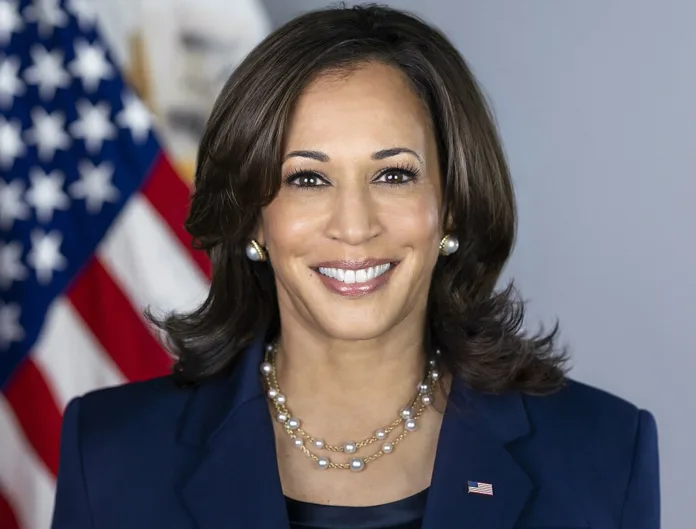As Vice President Kamala Harris encounters repeated interruptions from pro-Palestinian protesters, she has a unique chance to address their concerns while advancing her campaign message
Vice President Kamala Harris found herself under intense scrutiny at a rally in Michigan on Wednesday night, as pro-Palestinian protesters interrupted her speech for the second time. This disruption came on the heels of a meeting with leaders of the “uncommitted” movement, who had withheld support from President Joe Biden to protest U.S. policies toward Israel.
During the rally, Harris responded to the interruptions with a firm stance: “If you want Donald Trump to win, say that. Otherwise, I’m speaking.” Her defiant retort garnered enthusiastic support from the crowd. Despite the rally’s energetic response, the situation underscores a broader challenge for Harris and her campaign.
Embed from Getty ImagesProtesters have consistently targeted Harris, reflecting widespread dissatisfaction with U.S. foreign policy regarding the Gaza conflict. Unlike President Biden, who faced similar disruptions but often retreated from public events to avoid them, Harris has opted to confront these interruptions directly. This approach positions her uniquely to address the protesters’ concerns while simultaneously maintaining her campaign’s focus.
Harris’s strategy during these disruptions is crucial. Unlike Biden, who struggled to engage effectively with protesters, Harris has the opportunity to use these moments to reinforce her campaign message and demonstrate empathy toward the protesters’ concerns. Acknowledging the protesters’ grievances about the Gaza war and reaffirming her commitment to working towards a cease-fire could potentially align with the broader concerns of American voters, who generally support an end to the conflict.
The protesters’ dissatisfaction highlights a significant issue for Harris’s campaign: while Americans broadly desire an end to the war in Gaza, they also emphasize the importance of addressing hostages held by Hamas. This sentiment distinguishes pro-Palestinian protesters from other political dissenters, such as anti-abortion activists.
Harris’s approach to handling these interruptions involves more than just maintaining order at rallies. It requires her to articulate a clear and compelling stance on the Gaza conflict and convey her commitment to resolving the issue. By acknowledging her frustrations with the war’s duration and brutality and highlighting her efforts, such as her conversations with Israeli leaders and activists, Harris can address the protesters’ concerns while reinforcing her own campaign messages.
While Harris cannot single-handedly end the war or stop the protests, she can use these disruptions as an opportunity to underscore her values and policy positions. For instance, expressing a commitment to working towards a cease-fire and addressing humanitarian concerns in Gaza could resonate with voters and enhance her campaign’s appeal.
In addition to rallying support from voters, Harris must also address specific questions about her policy positions, such as her stance on arms embargoes. Her ability to provide clear and consistent answers to these questions will be critical in navigating the complex dynamics of the Gaza conflict and maintaining voter support.
Analysis:
Political: Harris’s handling of protests is a critical test of her political strategy and leadership style. By addressing the protesters directly and articulating her stance on the Gaza conflict, she has an opportunity to differentiate herself from President Biden’s approach. Her ability to effectively navigate these disruptions could influence her campaign’s trajectory and impact her standing among Democratic voters and swing state constituents.
Social: The protests reflect broader societal concerns about U.S. foreign policy and its implications for global conflicts. Harris’s response to these disruptions could shape public perception of her commitment to addressing humanitarian issues and engaging with diverse viewpoints. Her approach to handling the protests will be scrutinized by voters who are concerned about the ongoing Gaza conflict and the U.S. role in it.
Racial: While the immediate impact on racial dynamics is less clear, Harris’s handling of these protests could influence perceptions of her leadership and responsiveness to marginalized groups. Addressing the protesters’ concerns about the Gaza conflict may enhance her appeal to voters who are concerned about racial and ethnic injustices in the context of global conflicts.
Gender: Harris’s response to protests also highlights gender dynamics in political leadership. As a female Vice President, her handling of disruptions and her ability to maintain composure under pressure may be viewed through a gendered lens. Her approach to addressing the protests and articulating her policy positions could influence perceptions of her effectiveness and leadership style.
Economic: The economic implications of Harris’s handling of the protests are indirect but significant. Public perception of her ability to manage international conflicts and address humanitarian concerns could impact economic stability and investor confidence. Harris’s responses to the Gaza conflict may influence broader economic policies and international relations, affecting economic outcomes domestically and abroad.
